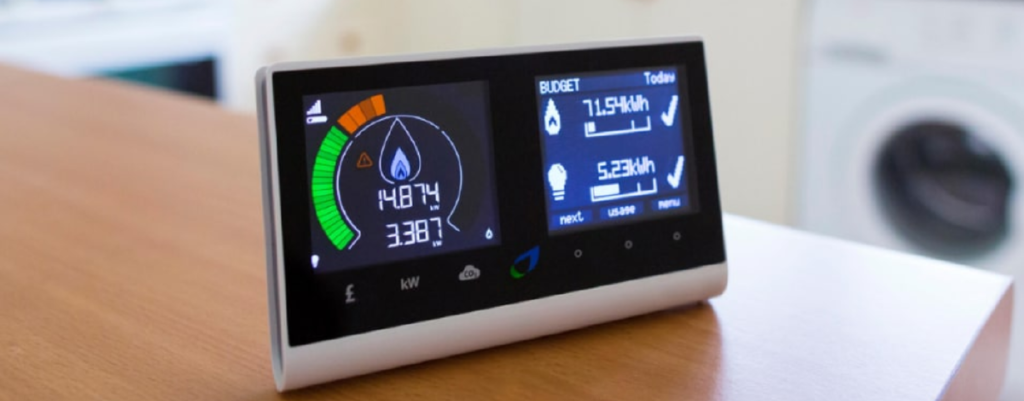The WaveWall Blog
Smart Meter Radiation
Smart meters are very common now and encouraged by both energy companies and the government to help people save money.
Smart meters attach to your electricity and/or gas supplies and automatically relay energy data to energy companies.
These wireless devices are often marketed as helping consumers save money, but in reality, they just help people keep track of their energy usage.
Rather than taking periodical manual meter readings, smart meters automatically send the data at regular intervals. This also means that meter readers don’t need to visit houses and take manual readings.
In the UK, as of 2021, there are some 27.8 million smart meters. Many of these are installed in small businesses, though, so home smart meter use is still reasonably low compared to other countries. For example, some 75% of homes in the US have smart meters.

Many households have smart meters already, but many will face the choice imminently. The decision to get a smart meter is not as straightforward as it seems, and the decision should be taken seriously for several reasons.
For example, smart meters are a privacy issue, as they introduce a wireless intelligence device into people’s homes, but there’s another issue at hand here which is seldom discussed: radiation.
Here, we’ll discuss whether smart meters pose a radiation health hazard and what you can do about it.
Table of Contents
What Are Smart Meters?
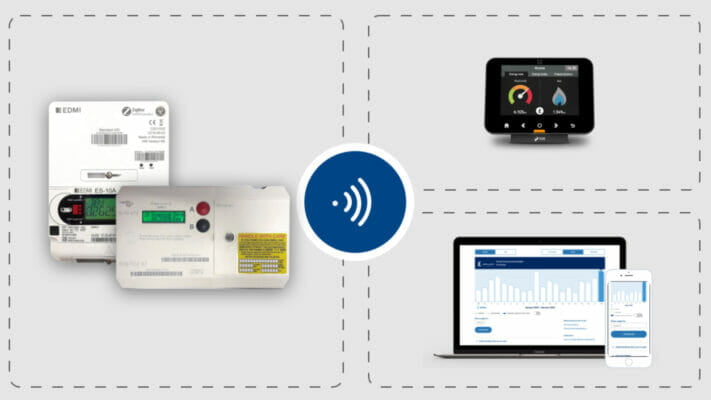
Smart meters connect to your electricity and gas and relay data to energy providers. This means that users don’t have to submit manual readings and can track their energy usage using tools.
Smart meters work on their own private wireless network (typically 2G). They don’t connect to WiFi. Smart meters use wireless connectivity by default, which brings them into a similar category as mobile phones as far as mobile phone radiation goes.
Are Smart Meters Worth it?
In the UK, the government expects every household to be offered a smart meter by 2025. So it’s reasonable to assume that smart meters are helpful, or at least benign, but in reality, they do very little to solve energy usage.
Smart meters in the Netherlands failed to decrease energy bills by even 1%. Likewise, in the US, smart meters have virtually no impact on energy usage and management.
So, who do smart meters benefit? You guessed it. The energy companies. Smart meters provide energy companies with valuable data that they can analyse to maximise profits and monitor consumer energy use.
They help energy companies cut costs, and evidence is scarce to suggest these cost savings are passed onto the consumer.
Smart Meter Privacy Issues
Smart meters enable energy companies to harvest certain data from homeowners that they can monetise.
In Scotland, energy companies were found to monitor users’ TV habits via their smart meters. Is that something you explicitly agree to when you consent to get one installed? Probably not.
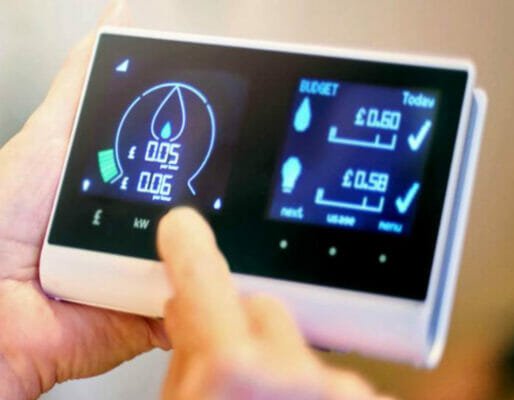
The data you can monitor through a smart meter is alarming. Since these devices introduce a wireless monitoring device into the home that connects directly to the electricity and gas, they can monitor everything from eating and sleeping habits to device and appliance usage.
Energy companies could sell the data to practically anyone, including marketing and advertising companies. Moreover, law enforcement could use smart meters to spy on people’s energy usage or determine whether they were in at a certain time.
Smart Meter Hacking Issues
Another critical issue with smart meters is hacking. Hackers have developed new techniques to infiltrate a home’s wireless network through their smart meters and IoT devices. For example, hackers stole Gmail credentials through a Samsung smart fridge.

British Gas had to make major changes to some of its smart energy devices after criminals were suspected of intercepting and analysing data to discover when homeowners were away.
Moreover, hackers can switch off or manipulate smart meter data to interfere with homeowners’ lives. There are numerous other vulnerabilities with smart meters that give hackers a back door into people’s homes and people’s data.
Smart Meter Health Issues
WaveWall is dedicated to EMF and RF radiation education and protection, so we want to concentrate on the health risks of smart meters.
Smart meters work on wireless networks similar to mobile phones. They send data in one of two ways:
- Via pulses that travel straight to the energy company. These are less common.
- Via a mesh, which integrates with other local smart meters. This helps reduce network congestion.
In either case, the smart meter sends pulses of wireless data, which naturally involves radiation in the RF to the low microwave bands, the same as mobile phones. This is why smart meters don’t connect to WiFI – they use their own wireless technology.
Mobile phones produce radiation which is demonstrated to cause negative health impacts. You can find many educational posts on this on the WaveWall blog, and we strive to be as objective as possible by referencing peer-reviewed journals. We also put forward alternative views.
In a nutshell, current evidence suggests that mobile phone radiation causes cancer, infertility and various other health effects. The WHO lists it as a “possible carcinogen”, and numerous high-profile academics are warning governments that RF and microwave radiation is a very serious health timebomb.
One of the most prolific voices warning of mobile phone radiation is Bioinitiative, a collaboration of hundreds of multi-discipline scientists and researchers. Bioinitiative and others argue that the ‘safe’ levels listed by many regulators and manufacturers are massively underestimated:
“At least five new cell tower studies are reporting bioeffects in the range of 0.003 to 0.05 μW/cm2 at lower levels than reported in 2007 (0.05 to 0.1 uW/cm2 was the range below which, in 2007, effects were not observed). Researchers report headaches, concentration difficulties and behavioral problems in children and adolescents; and sleep disturbances, headaches and concentration problems in adults. Public safety standards are 1,000 – 10,000 or more times higher than levels now commonly reported in mobile phone base station studies to cause bioeffects.” – Bioinitiative Report, updated in 2019.
The last line is critical here – public safety rules for radiation-producing devices like smart meters are hugely underestimated.
Let’s look at some numbers to find out how damaging smart meters could be.
Smart Meter Radiation: What Are The Numbers?
We must first establish what a ‘safe’ EMF level is. Unfortunately, this is extremely difficult to determine, and opinions differ wildly.
In short, most activists and researchers that warn of EMF cite that 1 mW/m² is a truly safe value.
The proposed ‘safe’ levels set by most organisations are around 1,000 to 10,000 times higher.
For example, in the US, safety guidelines range between 200 mW/cm2 to 1000 mW/cm2 but are considerably higher elsewhere.
Some analyses of smart meters place their EMF emission a 100 to 400 mW/m2 at 1 meter away. At 3 meters, the power density decreases to 10 to 40 mW/m2. So, we can see that smart meter radiation certainly exceeds what some define as ‘safe’ levels of EMF radiation.
You can analyse your smart meter with an EMF meter to see find out how much EMF it emits. Make sure you switch to the right scale (mW or uW/m2 is the same and is probably best. You can find a useful conversion chart here).
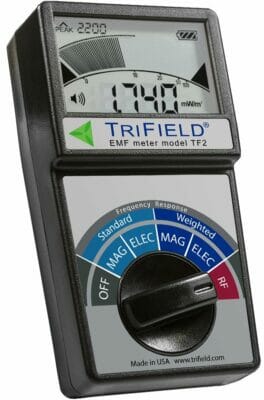
Are Smart Meters Dangerous?
Smart meters emit radiation. This radiation is non-ionising, meaning that it doesn’t fall into the same category as X-rays, Gamma rays and other highly destructive radiation.
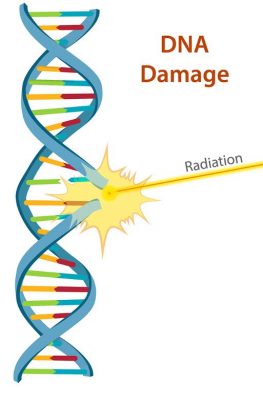
However, there is scientific consensus that radio frequencies (RFs) and low microwaves cause bioeffects, such as disrupting various cellular processes. Of course, this makes sense at face value.
The human body didn’t evolve to be exposed to radiation 24/7. And think about how much radiation we’re exposed to from our electronic devices, phones, routers, Bluetooth, etc.
Smart meters add to this radiation burden, and activists and researchers fear that their lack of regulation means they’re more damaging than phones. For example, Memorandum submitted to the UK Parliament says:
“Wireless meters will add to the microwave ‘load’ in the home, already increased by wi-fi antennae/DECT cordless phone bases (etc.). This is no trivial matter: there are now many papers on weak pulsed microwaves’ genomic and bioactive effects, including DNA breakages, aberrations & delays in repair” – Parliament UK.
The UK Health Security Agency published a report on smart meters in 2020. They conclude:
“The results confirm UKHSA’s existing advice that exposure to radio waves from smart meters is well below the guidelines set by the International Commission on Non-Ionizing Radiation Protection (ICNIRP)” – Gov UK.
The same issue applies – the ICNIRP’s guidance is set too low. So even if these findings are accurate, then they probably don’t use a reasonable scale for EMF safety. The report is quite bullish about the low risk of radio frequencies, when many international health agencies warn against them, including the WHO.
A draft report entitled California Council on Science and Technology “Health Impacts of Radio Frequency from Smart Meters” cites that smart meters emit 160 times more cumulative radiation than mobile phones. If that were correct, or even marginally close, then smart meters should be treated with extreme concern.
Anecdotal Evidence of Smart Meter Damage
A much-publicised stat suggests there were 2000 new health complaints in California once smart meters were rolled out.
There are thousands of smart meter-related anecdotes of people feeling slow, lethargic and generally ill with headaches, poor concentration and other somewhat vague but concerning symptoms.
An anecdote cited in the UK Parliament Memorandum says:
“A number of these devices have been installed in the vicinity and now my wife and I are getting constant headaches just when we are at home, we find it hard to get to sleep and when we do its broken and sleep after 5am is rare. I have been told these smart meters pulse out high levels of electrosmog every 6 minutes as they ‘poll’ …I read that 200,000 homes are to have these meters in 2012 and I wonder how many will be affected like ours” – Andrew Washington, MAIDSTONE, UK, UK Parliament.
Can we validate these anecdotes and claims? Not at all, and it has been shown that some people are especially sensitive to EMFs, so it’s highly likely that people will experience vastly different effects.
Ultimately, it’s difficult to objectively evaluate how smart meters are for us. But, there is certainly sufficient evidence here to suggest that:
- Smart meters work by emitting radiation by default.
- Smart meters are always in our houses; they may constantly emit radiation.
- Quantitative analysis suggests strong likelihood that smart meters exceed reasonable safe levels of EMF.
- Smart meters are risky for other reasons, too, so EMF isn’t the only reason why people should be wary of them.
Should I Be Worried About My Smart Meter?
Let’s take a look at a few important points first.
- Firstly, smart meters are not a legal requirement in the UK, and you’re at liberty to turn them down.
- There is scarce evidence to suggest the benefit of that smart meter consumers, and they almost certainly don’t reduce bills by a non-negligible amount. Eon says, “A smart meter doesn’t save you money on its own, but it can help you manage your energy usage and costs.”
- The risks of benefits include privacy issues, hacking, and health risks.
- Given the limited benefit of smart meters, the percentage call is that they’re not worth it.
If you’re worried about smart meter radiation, you can check it with a consumer EMF meter. See the above section for guidance and check our article What is a Safe EMF Reading?
What Can I Do About My Smart Meter?
If you don’t currently own a smart meter, it’s sensible to decline one until further notice. Tracking energy bills without a smart meter is relatively simple anyway.
You can legally remove smart meters. However, this Is Money says that while consumers have the right to remove their smart meters, the energy supplier could levy a charge.
Ovo highlights this rather passive-aggressive response on their forum: “it’s not usually possible to downgrade from a smart meter back to a traditional meter, except in very specific exceptional circumstances. Even in those cases, downgrading is extremely expensive and not usually worth the cost”.
It’s difficult to say what resistance you’ll get from your energy company if you want to remove your smart meter – all you can do is ask. One possibility is that they shut off the ‘smart’ function, so the meter stops relaying data automatically.
What Can I Do About My Smart Meter?
Consider where your smart meter is in relation to where you spend time in your home. For example, you can place EMF-blocking materials between the meter and your bedroom or living room.
Simply place the EMF-blocking material on the wall, or you can hide it in the back of a picture frame. If your meter is in a cupboard, you can install it into the sides while leaving space for the signal to get out in the direction that doesn’t face you.
If you have an EMF meter, you can experiment with various positions and setups and check how readings change.
Summary: Smart Meter Radiation
Smart meters emit radiation during day-to-day use. Some emit radiation via pulses, whereas others form a “net” that connects with other smart meters, so they can relay information to energy suppliers together.
The marketed benefits of smart meters are their capacity to help homeowners monitor energy bills. Unfortunately, they don’t reduce energy bills by much, and studies show that their benefits are minuscule.
In fact, smart meters only really benefit energy companies. The downsides of smart meters are numerous, including privacy concerns, hacking and cybercrime and health effects.
Health effects are produced by EMF radiation, which is also produced by mobile phones and other wireless devices. Smart meters operate in their own private network (usually 2G). There have been a few studies into smart meter radiation, and there’s a credible chance that they produce sufficient radiation to damage human health.
You can check your smart meter with an EMF meter and take action to reduce exposure by blocking radiation through certain walls, like bedroom or living room walls.

